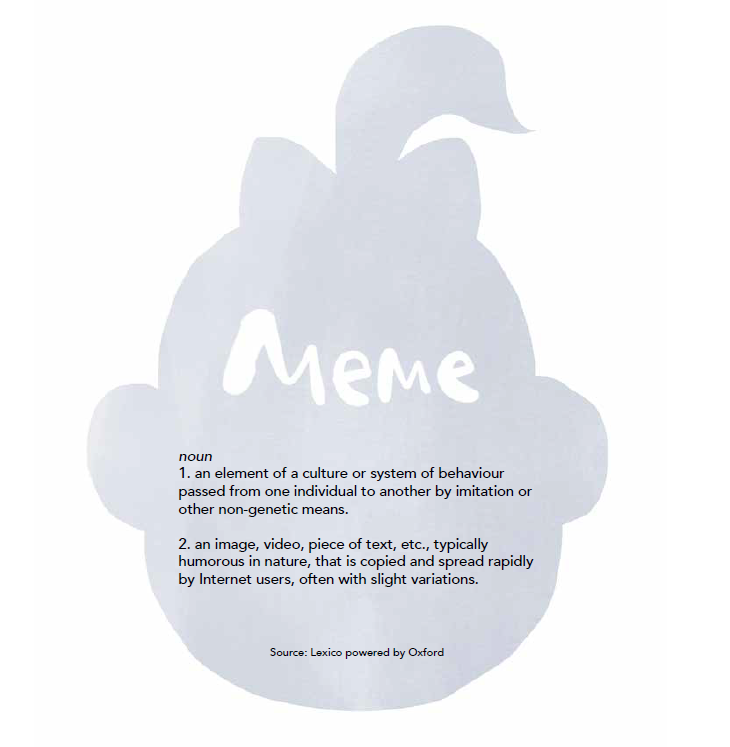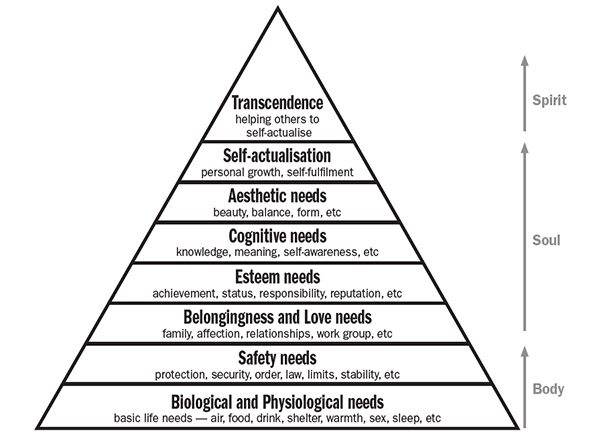Dear Reader
I created “Meme the Monkey” and wrote “Meme the Monkey Wins in Life” to inspire adults and children alike to think about what it means to win in life, and how to survive and succeed in a VUCA world – a world that is Volatile, Uncertain, Complex and Ambiguous.

Why the Name “Meme”
While pondering over a suitable name for the main character of this book, the name “Meme” suddenly popped up in my mind.
While most of us know a meme to be a piece of media, typically humorous in nature, which is spread from person to person via the Internet, I was fascinated to find out that a meme is also defined as “an element of a culture or system of behaviour passed from one individual to another by imitation or other non-genetic means”.
This definition was very significant to me as I recalled that Professor Rosabeth Kanter of the Harvard Business School had found that financial results are a “lagging indicator” of a company’s health, and that culture is a leading indicator that predicts the future.
Culture thus creates the future, be it in one’s family, community, organization, or country. And one cultural phenomenon that I hope to address with “Meme the Monkey” is to turn the self-obsessed “Me Me” culture, which to many people stereotypically defines many Millennials all around the world, into another form of “Me Me” culture that “Meme the Monkey” declares in the last sentence of the book, “Meme the Monkey Wins in Life”:
“Making life better starts with ME …it starts with ME!”
Winning in Life
And why should we seek to make life better for others?
You would notice that many people tend to evaluate success in life with things that they can feel and measure.
The result is that people value things that they can measure accurately with numbers, and devalue things that cannot be measured with any precision, even if they may be felt.
However, research concludes that the most important things in life cannot be accurately measured.
Further research into “Maslow’s Hierarchy of Needs” has concluded that our highest need as human beings is “transcendence”.
Desiring the best for others and doing good beyond ourselves is in fact a higher need than “self-actualisation”, which is being the best we can be according to our talents and abilities. We best succeed as human beings when we help others be the best they can be.
In another study, Harvard University spent 75 years researching what human beings need to flourish in life.
The most profound finding was: “Happiness is love. Full stop”. The study showed that relationships with other people, not one’s grades in school or one’s wealth, mattered more than anything else. To make the most of our lives, we need to be clear what it means to succeed as a human being – that is to love and make life better for others, and not only for ourselves.

Maslow’s Hierarchy of Needs Extended
Winning in a Volatile World
Futurist Gerd Leonhard noted that in most of the futuristic industries, technology can take two paths that he calls “Hellven” – this means that technology can be “heaven” (where it is used to raise the well-being of people) or “hell” (where it brings about bad consequences).
While technology has progressed exponentially, humanity has only progressed linearly; while technology does not have ethics, people depend on it. In addition, Leonhard believes that anything that cannot be digitised will become more valuable, and that in a world of automation and abundance, experience will become extremely valuable. In an “experience economy”, people will be more willing to pay for bespoke services and will value more highly human traits such as intuition, love, trust, and understanding.

Creativity, innovation, social intelligence, and customer focus will thus be very important for every business. Employees need to be skilled in creative problem-solving and constructive interaction if they still want good jobs.
What this means is that in order to survive and succeed in a volatile world, we must not only excel at skills and technology, but also at humanity. In other words, we must constantly seek to be better human beings and to refine our souls.
Education should thus be focused on developing our children’s capacity as human beings and their skills, and not on perfecting their grades.
The latest PISA (Programme for International Student Assessment) survey by the OECD (Organisation for Economic Cooperation and Development) revealed that Singapore students are more afraid of failure than their 15-year-old international counterparts.
Young students in Singapore indicated that they are concerned about how others thought of them when they “failed”; failure also made them doubt they had enough talent, and called their plans for the future into question.
This fear of failure is of grave concern if Singaporeans believe that our country’s future success lies in a strong spirit of innovation, creativity, and enterprise. We need to understand this as a deep challenge for Singapore’s society, and not simplistically as a problem with the education system.
May You Win in Life!
In his book, A Compass to Fulfilment, Kyocera Corporation founder Kazuo Inamori opined that “a better tomorrow will come when each individual understands the noble mission with which he or she has been entrusted, and strives to live in a way that is right as a human being”.
Mr Inamori also commented that if each individual understands his or her mission in life and does his or her best in the ordinary things in life, “every individual, family, business and nation will progress in a positive direction and achieve great results”.
Like Meme the Monkey, may you do your best each day to be the best that you can be and to do good to others. In doing so, you will win the race of life with honour!
All the best,
Joanne H. Lim

About Meme’s Creator
Joanne H. Lim was awarded the Singapore Literature Book Prize in 2014 and is the founder of The Right PerspectiveSG, a consultancy specialising in writing and strategic communications.
She is the co-author of “The Leader, The Teacher & You”, a book on leadership and governance, as well as “Winning with Honour”, a book on success in life, family, and work. “Meme the Monkey Wins in Life” is the kids version of “Winning with Honour”.
